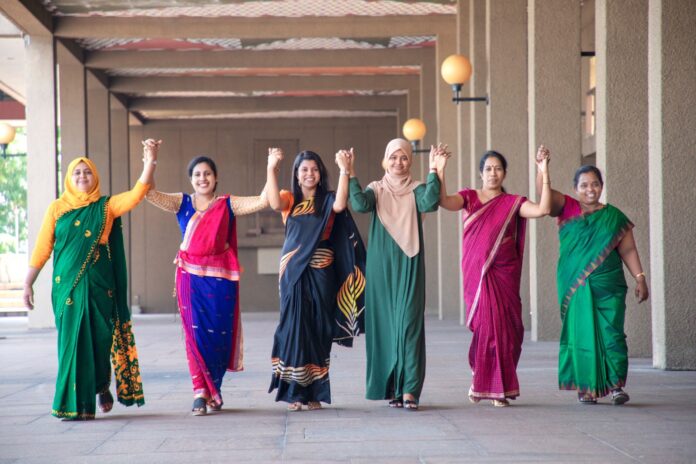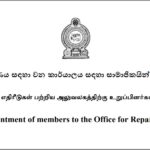The Women Parliamentarians’ Caucus (WPC) propose to develop a more effective and efficient complaint and investigative mechanism to regulate gender-based violence on digital platforms to safeguard the well-being and dignity of women and girls.
In a statement the WPC also says that it is necessary to build awareness on digital gender-based violence and safer means of using digital platforms among the general public.
The statement is issued by Dr. Sudarshani Fernandopulle, Chairperson of the Women Parliamentarians’ Caucus to mark International Women’s Day which falls on the 08th March.
Please find the full statement below.
On the 8th of March 2023, we commemorate the International Women’s Day which is observed with an overall objective of promoting the understanding of issues faced by women striving for greater gender equality and women’s empowerment, while celebrating the progress so far made towards achieving such goals.
Whereas an international day dedicated towards women might appear inconsequential, the observance of this day is crucial in creating public awareness on women’s rights and issues faced by women, and above all it is a powerful advocacy tool to mobilize political will and resources to realize gender equality and women’s empowerment.
With the advancement of technology and globalization, the challenges that women face have altered. However, prejudices and stereotypical beliefs still stand in the way of women realizing their full potential, even in the 21st century. In order to cater to the changing world and the problems that come hand in hand with it, the theme for this year’s International Women’s Day is “DigitALL: Innovation and technology for gender equality”.
In the light of the global pandemic and the resultant movement restrictions imposed, life on earth drastically changed with many activities, ranging from professional work, education and social activities, being transformed and transferred to the online digital world. Online education and working from home have now become the norm in many post-pandemic societies, including Sri Lanka. Therefore, the use of digital spaces and devices drastically increased, particularly among children, as parents permitted children accessing the internet and using smart-phones in order to facilitate online education.
While the overall usage of online and digital spaces and devices have increased, a considerable part of the country is prevented from accessing the internet altogether due to problems ranging from connectivity issues to the inability to purchase digital devices due to economic constraints. This is particularly detrimental to children whereas online education has become the new norm. It also appears that in instances where a family could afford just one device, the male child is given preference over the female child to use the device due to prejudicial beliefs. It is reported worldwide that the digital literacy is lower for women than for men due to the limitations faced by women in their access to devices, networks and data.
However, if it is also not used correctly, the internet could very easily become a medium propagating violence and harassment. Complaints made to the Sri Lanka Computer Emergency Readiness Team (SLCERT) and National Child Protection Authority (NCPA) by distressed individuals and parents reached a record-high by a pandemic-hit society. The victims of most such instances were women and girls.
Therefore, building awareness on digital gender-based violence and safer means of using digital platforms among the general public is an imperative.
In view of the above, the Caucus has strengthened its efforts to initiate discussions to mobilize resources for improved accessibility to internet and to improve regulations to prevent digital gender-based violence. While acknowledging there is yet a long way to go, the Caucus is determined to stay committed to its undertaking to empower women, and creating an enabling environment that promotes, protects and supports the digital rights, well-being and dignity of women and girls.












